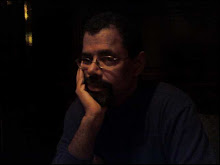Fixing the Electoral College State by State
There’s an interesting idea afoot in the California and other state legislatures. The goal, proposed by Tom Umberg’s (D-Santa Ana) Assembly Bill 2948, is to have participating states direct their Electoral College votes to support the winner of the popular vote for president. (Read the news here.) For example, if George Bush beats John Kerry by three million votes nationwide, all of California’s electors would vote for Bush when they gather in early December.This seems a little weird at first. But when you look a little deeper you see that it's trying to fix something which needs fixing, by making sure that the popular vote is reflected in the electoral college White House is won by the man or woman who gets the most individual votes, not the most individual states, as is the current practice.
In 2000 we the loser of the popular vote won the election. In 2004 we almost had the loser by several million votes, John Kerry, win if he’d have taken Ohio. Both sides of the aisle are worried about this happening again, and some thoughtful souls are looking for ways to fix the current system without requiring a constitutional amendment which would be almost impossible to pass (as it should be; the Constitution is wisely designed not to be tinkered with easily).
So the reformers are looking at state-by-state reform, because under the current rules every state pretty much selects its electors as it pleases. A compact of the kind under consideration would probably require congressional approval under the Constitution’s Compact Clause but that’s a much lower hurdle than getting three-fifths of the states to approve an amendment.
The goal behind the compact idea is sound. But it’s going about it the wrong way.
Under the current system a presidential candidate only has to bother with the so-called “battleground” states” during the summer and fall. All of the others just stand and watch. Rich states like California are little more than ATM’s for both parties. And why not? Why waste resources on an irrelevant battlefield?
My suggestion is to divide the votes more proportionally within the states, which can be done under current law. States are allowed, under the Constitution, to decide how their votes are apportioned, so there's no constitutional change required. Each individual electoral vote represents a seat in Congress. I suggest tying each vote to how a specific Congressional district votes, with the two Senate seats going to whoever wins statewide. Maine and Nebraska do something like this. This puts most states back into play in presidential elections. Every state has something to offer. California would have the blue counties east and northeast of Sacramento and around parts of the inland to offer the GOP. Texas would have red counties to offer the Democrats. Candidates and national parties would have to see the election map as district-by-congressional district, not just state by state. Every state would be a potential "swing" state, which is the way it should be, and why other states would to want to sign up if we get the ball rolling on this.
My hope is that Umberg’s bill starts a discussion we need to have before the next presidential election rolls around. Unfortunately, history shows that it usually takes a train wreck to move real reform. But we can still try.


2 Comments:
Terry- I go whole hog on this one. Whoever wins the popular vote nationwide should get all of California's electoral votes. I believe that the will of the majority should be controlling, not the Rube Goldberg system we have in place now.
I think this bill is a great idea.
It also encourages candidates to come into California even if it is going to vote Democratic for President--because the focus is on getting the most votes nationwide and therfore doing a little bit better here counts as much as gaining those same number of votes in a swing state.
Frank,
My worry is that it'll tilt the system too much in the opposite direction, that the coasts will get all the attention to the exclusion of everywhere else. Yes, the coasts tend to live in the 21st century, but the flyover should still get attention.
I'm just a fan of balance, and I like the idea of having CD's play a role because it forces campaigns to look at the small pieces, not just the chunks.
Post a Comment
<< Home